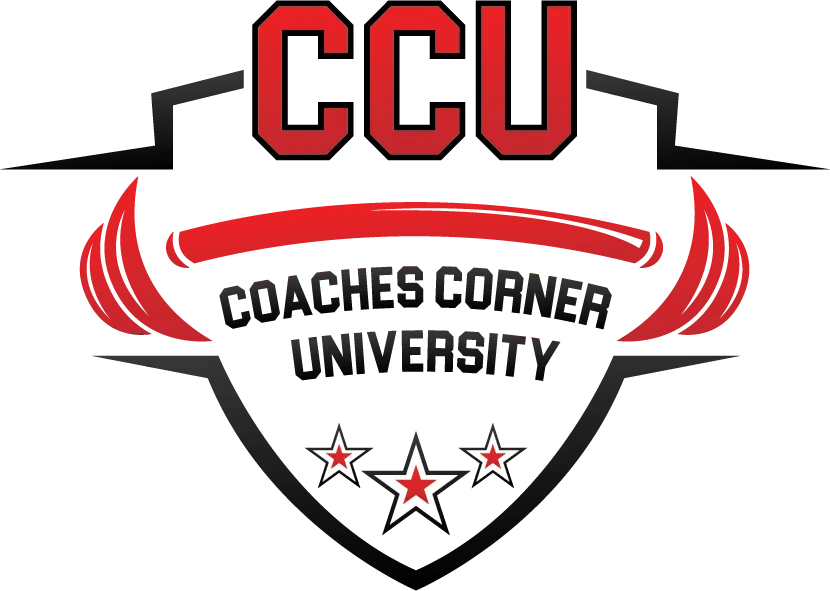Discover The Latest Blogs
Stay updated with Our Informative Blog Posts

CCU Podcast: Build Wealth and Enjoy Your Life - Justin Green
Build Wealth and Enjoy Your Life
Today, I sat down with Justin Green, Financial Planner & Founder of Assist Financial Planning. He is a Certified Financial Planner™️, committed to helping Millennial solopreneurs, business owners, and high-earning professionals create and execute personalized financial plans.
As someone who's navigated the transition from collegiate strength coach to business owner, I can attest that financial planning represents one of our profession's most significant blind spots. Many of us excel at programming periodization, monitoring athlete adaptation, and driving performance outcomes—yet we often neglect the systematic approach to our financial well-being that could secure our long-term success.
Our conversation covered everything from cash flow management to investment strategies, but with a specific focus on how fitness professionals can build sustainable wealth while continuing to pursue their passion. Justin's perspective is particularly valuable because he understands the unique challenges faced by service-based entrepreneurs who often have inconsistent income streams and lack traditional employer benefits.
What struck me most was the parallel between effective financial planning and the principles of progressive overload that we apply daily with our athletes. Just as we methodically track training variables and incrementally increase stimulus to drive adaptation, financial success requires systematic monitoring, consistent contribution, and strategic periodization of resources.
Whether you're just starting your coaching career or running an established strength business, the following insights offer a comprehensive framework for building financial strength that matches your physical prowess. Let's dive into the ten most valuable takeaways from our discussion.
10 Financial Insights from Build Wealth and Enjoy Your Life
Business vs. Personal Finances: Maintain Clear Separation
Your business finances and personal finances are entirely different entities. Many coaches focus extensively on business revenue while neglecting personal financial management. Establish separate bank accounts and tracking systems for each, and understand that being skilled at generating income doesn't automatically translate to managing wealth effectively.
Calculate ROI on Business Investments
Before investing in business expenses like coaching, marketing, or equipment, calculate your expected return on investment. If you charge $300/month with a 10-month average client retention ($3,000 lifetime value), a $300 marketing expense that generates one client represents a 10:1 return—a worthwhile investment. Evaluate every business expenditure through this lens.
Master Cash Flow Management
Cash flow isn't about how much money you're making—it's about how much you're keeping. Track your expenditures meticulously, understand your fixed expenses, and know exactly what your lifestyle costs. This is as fundamental to financial health as tracking macros is to nutrition.
Implement the 50-30-20 Rule
A practical framework for managing personal finances: allocate 50% to living expenses, 30% to discretionary spending, and 20% to savings/investments. This creates clear boundaries while still allowing flexibility for personalization based on individual circumstances and goals.
Automate Your Savings
The "cheat code" to financial discipline is automating your savings so money never hits your spending account. At the beginning of each month, transfer your designated savings amount to investment or savings accounts automatically, removing the temptation to spend it.
Understand Business Tax Obligations
As a self-employed coach, set aside approximately 30% of your profit for taxes. Looking at your bank account without accounting for tax obligations creates a dangerously inflated perception of available funds that leads to overspending.
Start Investing Early and Consistently
Time is your greatest financial advantage. Starting to invest even small amounts in your 20s and early 30s can create significantly more wealth than waiting until your 40s or 50s to begin, thanks to the power of compound interest. For long-term goals (five years or more), consider index funds rather than high-volatility options.
Plan Beyond Active Coaching Income
Few strength coaches retire from active coaching alone. Diversify your income streams by developing signature products or services that don't require your direct time to fulfill, and invest profits systematically to build wealth outside your coaching business.
Pursue Financial Freedom, Not Tax Avoidance
Many entrepreneurs obsess over minimizing taxes rather than building wealth. The real goal should be financial flexibility—having enough resources to make choices about your career and lifestyle. Focus on intentional wealth-building rather than tax avoidance schemes.
Balance Present Enjoyment with Future Security
Financial planning isn't about extreme sacrifice or delayed gratification. It's about intentional balance—enjoying life now while systematically building resources for future flexibility. Create a plan that allows you to live well today while consistently preparing for tomorrow.
By implementing these principles, strength and conditioning coaches can build sustainable financial foundations that support both their businesses and long-term personal wealth creation.
Find Justin:
Website - assistfp.com
Instagram - @justingreenfp
Find the podcast:

Coaches Corner PhD




